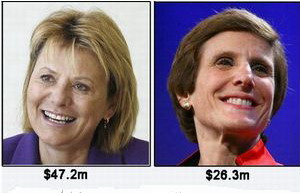Opinion
Crisis shows the need for deeper unity in Europe
By Paul De Grauwe (China Daily)
Updated: 2010-05-15 10:50
 |
Large Medium Small |

Since the eruption of the Greek crisis, a feeling of doom and gloom about the future of the euro has preoccupied financial markets.
The $1 trillion financial-assistance program that was put together on May 9 by the European Union's Ecofin Council might have stemmed the prevailing panic, but it hasn't taken away the sense that the common currency is doomed. There is a strong feeling that the collapse may have been avoided for the moment but that it will implode sooner or later.
Why this sudden pessimism? Just after the outbreak of the banking crisis, euro-member countries were congratulating themselves about the protection that the region provided its members. All this is gone now.
An outsider would surely conclude that if a sovereign-debt crisis was likely to break out somewhere, it should be in the US, not the euro area. The reason it took place in Europe is that the average debt-to-GDP ratio of the euro area hides large differences between countries and the region doesn't have a mechanism to deal with these differences.
The differences are striking. Countries such as Greece and Italy have very high public-debt levels, raising concerns about their capacity to service their bond obligations in an environment of low economic growth. Most other euro-area nations have debt that is benign compared with the US and the UK.
| ||||
The contrast with the US is great. There are similar deficit-and-surplus regions there, yet these divergences are alleviated by automatic redistributions from the centralized federal budget to the deficit regions, without anyone noticing.
We then arrive at the key to the euro-area's problems: It is a monetary union without a political union. In a political union, there is a centralized budget that provides for an automatic financial-solidarity mechanism in times of crisis. This is completely absent in the euro area. Instead, when a crisis erupts, governments start fighting. Some of them, such as Germany's, are outraged about having to provide financial support to other irresponsible governments.
Much time was lost and much damage was done before euro-area governments came up with their stabilization fund. A political union would have ensured that budgetary policies are more coordinated, preventing the large differences in fiscal outcomes. Without this, monetary union has no future. It will walk from one crisis to another.
Euro-member countries should use the challenge provided by the debt crisis to start this process of unification.
Paul De Grauwe is an adviser to European Commission President Jose Barroso. The opinions expressed are his own.















